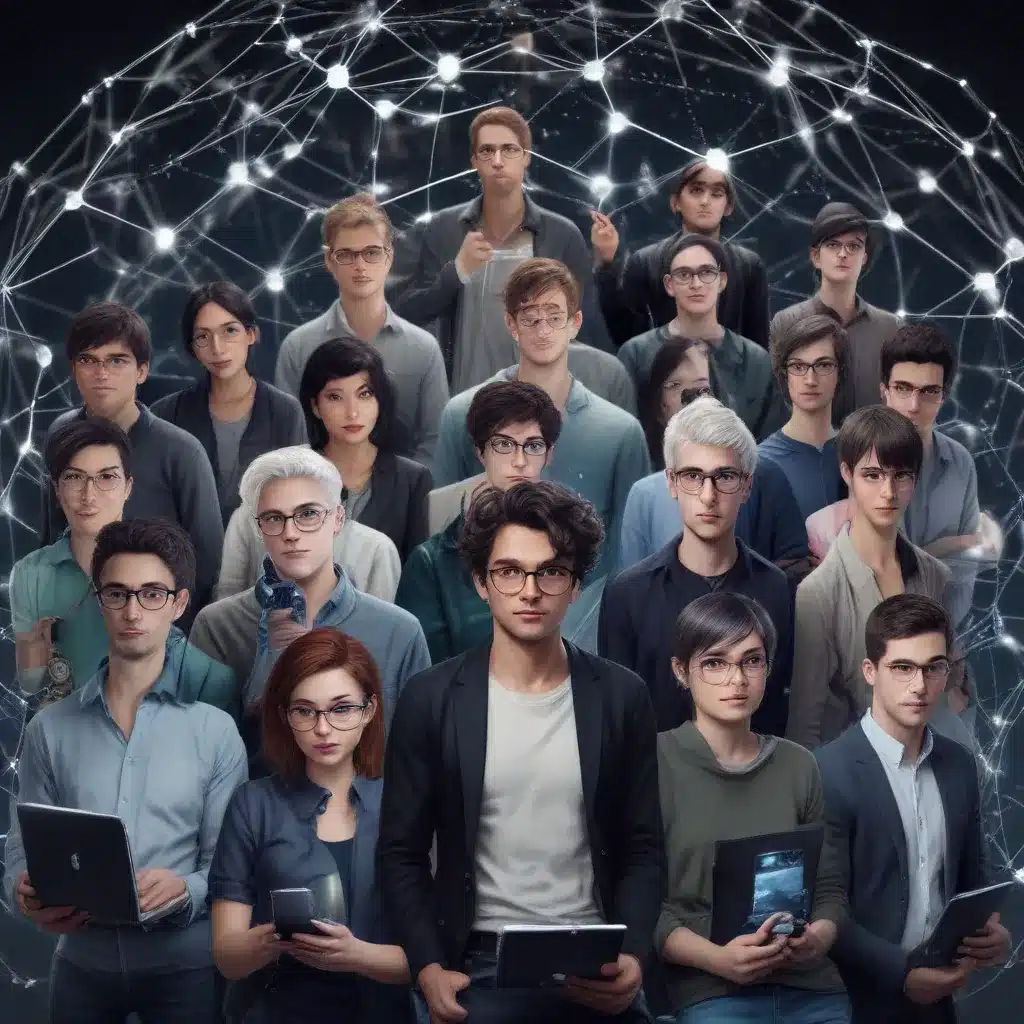
As we navigate the emerging landscape of the decentralized metaverse, a fundamental shift is occurring in the way we conceptualize and protect our digital presence. The convergence of virtual worlds, blockchain technology, and the evolving internet infrastructure is giving rise to a new paradigm where our virtual identities, assets, and experiences demand robust safeguarding measures. In this comprehensive article, we will explore the importance of backup strategies and the critical role they play in securing our virtual footprint in the decentralized metaverse.
Decentralized Metaverse
The decentralized metaverse represents a profound evolution in how we interact with and experience the digital realm. This interconnected virtual ecosystem, powered by blockchain, distributed ledger technology, and emerging technologies, offers users unprecedented levels of digital ownership, autonomy, and immersion.
Virtual Identities
Within the decentralized metaverse, our virtual identities take on a newfound significance. These digital representations of ourselves serve as the gateway to our online personas, granting us access to a vast array of virtual experiences, social interactions, and economic opportunities. Safeguarding the integrity and continuity of our virtual identities is, therefore, of paramount importance.
Virtual Assets
The decentralized metaverse has ushered in a new era of digital asset ownership, where non-fungible tokens (NFTs) and other blockchain-based digital items hold real-world value. From virtual real estate and collectibles to in-game items and digital art, these virtual assets require robust backup and recovery strategies to ensure their long-term preservation and transferability.
Virtual Experiences
As the metaverse evolves, our virtual experiences become increasingly immersive and integral to our daily lives. From virtual workspaces and educational environments to entertainment hubs and social platforms, the need to protect and maintain the continuity of these experiences is essential for seamless transitions and uninterrupted access.
Backup Strategies
Navigating the complexities of the decentralized metaverse demands a comprehensive approach to data backup and recovery. Leveraging the inherent advantages of decentralized storage, distributed ledger technology, and automated backup solutions can provide a robust and resilient framework for safeguarding our virtual identities, assets, and experiences.
Decentralized Storage
Decentralized storage solutions, such as InterPlanetary File System (IPFS) and Filecoin, offer a decentralized alternative to traditional cloud storage. By distributing data across a network of nodes, these systems enhance the resilience and availability of our digital assets, reducing the risk of single points of failure and data loss.
Distributed Ledger Technology
The integration of blockchain and distributed ledger technology (DLT) into the decentralized metaverse provides a secure and transparent means of recording and verifying our virtual transactions and ownership records. By leveraging the immutable nature of blockchain, we can ensure the traceability and authenticity of our digital possessions, facilitating seamless backup and recovery processes.
Backup Automation
Automated backup solutions, tailored for the decentralized metaverse, can streamline the process of safeguarding our virtual identities, assets, and experiences. These systems leverage smart contracts, AI-driven data management, and integrated recovery mechanisms to ensure the continuous protection and seamless restoration of our digital footprint.
Securing Virtual Environments
As we immerse ourselves in the decentralized metaverse, addressing the evolving cybersecurity challenges and regulatory requirements is crucial for maintaining the integrity and privacy of our virtual presence.
Cybersecurity Concerns
The decentralized nature of the metaverse introduces new attack vectors and security risks that require proactive mitigation strategies. Robust encryption, multi-factor authentication, and advanced threat detection and response capabilities are essential for safeguarding our virtual environments against cyber threats.
Privacy and Data Protection
The decentralized metaverse poses unique challenges in terms of data privacy and personal information management. Adhering to regulatory frameworks, such as the General Data Protection Regulation (GDPR) and emerging Web3 data privacy standards, is crucial for ensuring the protection of our digital identities and the confidentiality of our virtual experiences.
Regulatory Compliance
As the decentralized metaverse continues to evolve, regulatory bodies are actively developing guidelines and policies to govern the virtual landscape. Staying informed and compliant with these emerging regulations, particularly those related to digital asset ownership, data management, and cross-chain interoperability, is essential for navigating the metaverse safely and responsibly.
Emerging Technologies
The decentralized metaverse is a dynamic and rapidly evolving ecosystem, driven by the convergence of cutting-edge technologies. Exploring the latest advancements in blockchain, cryptocurrency, augmented and virtual reality, and edge computing can provide valuable insights into the future of backup and data protection in the virtual realm.
Blockchain and Cryptocurrency
Blockchain technology underpins the decentralized metaverse, enabling the secure and transparent management of digital assets, identities, and transactions. The integration of cryptocurrency and decentralized finance (DeFi) solutions further enhances the flexibility and resilience of the virtual economy, providing new avenues for backup and recovery strategies.
Augmented and Virtual Reality
The immersive experiences of augmented reality (AR) and virtual reality (VR) are integral to the decentralized metaverse, shaping how we interact with and perceive our virtual environments. Ensuring the seamless preservation and restoration of these experiences requires innovative backup solutions that can capture and safeguard the full depth of our virtual interactions.
Edge Computing and 5G
The proliferation of edge computing and the rollout of 5G networks are crucial enablers of the decentralized metaverse, providing the necessary infrastructure for low-latency, high-bandwidth, and distributed data processing. These advancements can enhance the efficiency and reliability of backup and recovery mechanisms, ensuring the real-time protection and restoration of our virtual assets and experiences.
As we navigate the shift towards a decentralized metaverse, the importance of robust backup and recovery strategies cannot be overstated. By leveraging the power of decentralized storage, distributed ledger technology, and emerging cybersecurity solutions, we can safeguard our virtual identities, assets, and experiences, ensuring their long-term preservation and seamless integration into the evolving digital landscape. By embracing these transformative backup strategies, we can unlock the full potential of the decentralized metaverse and confidently embrace the future of the internet.












